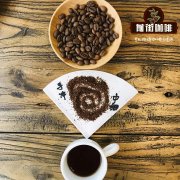Ethiopian Limu coffee beans give you 3 reasons to love Limu coffee

Professional coffee knowledge exchange more coffee bean information please follow the coffee workshop (Wechat official account cafe_style)
Ethiopian Limu coffee beans
When you think of Ethiopia, it is usually Yirgacheffe and Sidamo that attract everyone's attention, but I will let you know one of the best secrets of the coffee industry-quality Limu provides more balanced and refined cups, rather than the difficulties caused by fruits and wild acids that Yirgacheffe and Sidamo often find sometimes unneeded.
Ethiopia must be the most challenging (frustrating) source for purchasing raw coffee-but it must be rewarding and persistent for patients.
Demand always exceeds supply, and many qualities vary greatly.
It takes up to four months to get to many places and coffee companies usually use existing products.
Take washed Yirgacheffe-there has been a chronic shortage in Australia since January 2014, and there doesn't seem to be much light at the end of that dark tunnel. Limu is on a par with and sometimes even better than other Ethiopians.
I like Limu coffee because it can be consistent from batch to batch and has cleaner, balanced cups instead of shooting the left field with strong berries as Sidamos does.
What can I get from Limu coffee?
You drink a cup of African coffee with undeniable nuances-full-bodied, sweet, with a rich aftertaste.
Depending on the season and specific circumstances, Limu will present a vibrant citric acid, which is both pleasant and satisfying.
Citric acid is a key factor in the characteristics of cleaning cups. Generally speaking, it is a taste of lime or lemon, which may sound incompatible with the taste of classic coffee, but in fact it complements the cup experience.
Depending on the depth of the barbecue, there will be flavors of cocoa and chocolate.
We like to take Limu to places where fruits and chocolates can be found in coffee.
This creates what we call "distortion".
In front of the taste, you will immediately find the fruit-this is a pleasant "black", and then in the milk, more cocoa will occur at the back of the taste and at the end of the taste.
There is some taste of apricot nectar in this Limu, which makes the cup very complicated. We especially like the juicy middle, which makes you want another cup.
END
Important Notice :
前街咖啡 FrontStreet Coffee has moved to new addredd:
FrontStreet Coffee Address: 315,Donghua East Road,GuangZhou
Tel:020 38364473
- Prev

What is the coffee grading system in Kenya? What's the difference between Kenyan AA TOP and Kenyan AA?
Last time we talked about Esse's coffee grading, today let's take a look at the coffee grading in Kenya. After all, you will see AA and AB as soon as you see Kenyan coffee. What on earth do you mean? What is AA TOP? Coffee producers in Kenya are mainly divided into two types, the first is large estates, and the other is the so-called
- Next

Coffee beans at La Tisa Manor in Guatemala taste well-balanced and full-bodied with chocolate flavor.
Professional coffee knowledge exchange more coffee bean information please follow the coffee workshop (Wechat official account cafe_style) Guatemala Latisa Manor coffee bean flavor balance, mellow thickness, with chocolate flavor of Guatemalan coffee, to bourbon, Tibica, Kaduai, Kaddura-based, can be called the most perfect coffee in the world. Guatemalan coffee has a strong
Related
- Does Rose Summer choose Blue, Green or Red? Detailed explanation of Rose Summer Coffee plots and Classification in Panamanian Jade Manor
- What is the difference between the origin, producing area, processing plant, cooperative and manor of coffee beans?
- How fine does the espresso powder fit? how to grind the espresso?
- Sca coffee roasting degree color card coffee roasting degree 8 roasting color values what do you mean?
- The practice of lattes: how to make lattes at home
- Introduction to Indonesian Fine Coffee beans-- Java Coffee producing area of Indonesian Arabica Coffee
- How much will the flavor of light and medium roasted rose summer be expressed? What baking level is rose summer suitable for?
- Introduction to the characteristics of washing, sun-drying or wet-planing coffee commonly used in Mantenin, Indonesia
- Price characteristics of Arabica Coffee Bean Starbucks introduction to Manning Coffee Bean Taste producing area Variety Manor
- What is the authentic Yega flavor? What are the flavor characteristics of the really excellent Yejasuffi coffee beans?

